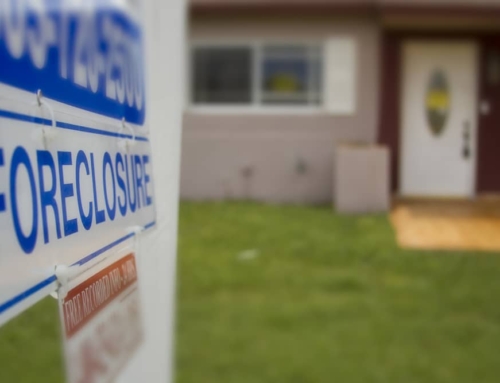You know it’s spring when “for sale” signs start popping out of the ground faster than crocuses.
But for home buyers, Spring 2006 is a very different market than what home buyers have seen over the past few years.
While some markets have remained strong, sales are slowing. The number of new homes on the market has climbed, developers are offering big incentives to get their properties sold, and sellers are sweetening the pot for existing homes.
If you’re a seller right now, you’re nervous. If you’re a buyer, there’s a lot to be thankful for.
Because the market has changed, savvy home buyers need to think about the home buying process a little differently. Here’s my list of 10 things you need to know to make the most of today’s marketplace:
-
Get pre-approved before you start to look. If you don’t know what you can afford, you won’t know where you should be looking. Homes are a lot more expensive than they were even 5 years ago. While sellers are more nervous about selling (and listing times are on the rise), you can’t be an effective negotiator if you don’t know what your bottom line is. So, get pre-approved, and get your lender’s commitment to fund your loan in writing — just don’t share that bottomline number with your agent.
-
Decide what you’re willing to trade off — upfront. No one gets everything they want when they buy a home. The trick is to know what you’re willing to give up in order to get most of what’s on your wish list. You and your spouse or partner should itemize your wish lists, with your most important choices at the top. Then, compare the lists. Often they’ll be different. It’s important to know that upfront, when the two of you can work through your differences privately — and not in front of your broker.
-
Spend time getting to know your neighborhood of choice. Often, home buyers start the process of buying a home by going online to any number of websites and looking at homes they think are in their price range. While I like the idea of using the web to find a home, you’ve got to actually see the neighborhood to determine what’s really there. Spend time walking the streets, driving around, visiting local shops and supermarkets. Drive your commute to and from the neighborhood in the morning and evening so you know what you’re getting into. Talk to some of your prospective neighbors about what’s going on. Look at the school districts, recreational options, and the local library. You’ll learn more with some hands-on detective work than by reading brochures your agent has prepared.
-
Find a great agent who listens to what you say. Sometimes, agents have their own agenda. You want one who will allow you to set the pace. You also want one who will be your eyes and ears in your neighborhood of choice, preferably someone who has been in the business for awhile, and has good knowledge of the housing stock that’s available.
-
Get to know the “true value” of the neighborhood. Even if you work with a great agent, you’ll need to do plenty of work yourself. Use the Internet to identify potential homes, and then talk to your agent about whether those homes are really right for you, and if they’re worth the money the seller is asking. Only by looking at plenty of houses (I looked at 150 the last time I went house-hunting) will you begin to develop a sense of relative value for your neighborhood of choice.
-
Long-term interest rates are rising, but not as fast as short-term rates. Skip the adjustable rate mortgages (ARMs) for now. As the Federal Reserve Bank continues to raise the Federal Funds rate, short-term mortgages, like ARMs, will go up. In fact, the difference between a 5/1 ARM and a 30-year mortgage is currently less than half a percent and in some places there is no difference. That’s not worth the risk that rates will rise significantly over the next five years. Lock in a 15-year or 30-year rate when you buy your home.
-
Make the most of a seller’s situation. A great agent should be able to find out at least a little bit about a seller’s situation. Use the information your agent gleans carefully to construct the best offer. If the seller has already bought another house and is carrying two mortgages, he or she might be open to a fast closing (make sure your lender can meet that timetable). If the seller is still looking for a home, and you can wait awhile before closing, or if you’re willing to do a post-closing possession, you can let the seller dictate the closing date. If cash is important, and you like the seller’s taste in outdoor furniture, perhaps you can include some of the furnishings in the price.
-
Don’t be afraid to make a low-ball offer. A house around the corner from where I live has been vacant for months. The sellers put it on the market more than a year ago, and can’t seem to get it sold. Meanwhile, they’ve moved on. If I were looking to buy a house in this neighborhood, I’d come in 12 to 15 percent below their asking price, which is about where I think the house should sell. While that’s considered a true low-ball offer, I think it’s warranted in that situation. If homes are selling quickly in your neighborhood of choice, your low-ball offer might be spurned. But if a house has sat for a long time, any offer might be welcomed.
-
Don’t forget the home inspection. Even if you’re planning to gut a property, you should hire a good home inspector to make sure the property doesn’t have any fatal flaws (like a buried oil tank). It’s even more important if you’re planning to live in the home for awhile before renovating. Get a professional home inspection for a new house as well, to make sure the developer has wired the outlets correctly. In fact, if you’re buying a house that’s still under construction, negotiate to have the home inspector visit the house several times: after the foundation is poured, after the framing is done, after the house is wired and plumbed, and before closing.
-
Don’t expect the property to increase in value more than 3 to 5 percent over the next few years. Nationally, home prices seem to keep rising astronomically. But, that can’t continue. If you buy expecting insane appreciation, you could be sorely disappointed. If buying for appreciation, choose a home that needs some work, so you can build-in value. But count on appreciation that stays just ahead of inflation. Anything else is frosting on the cake.






Leave A Comment